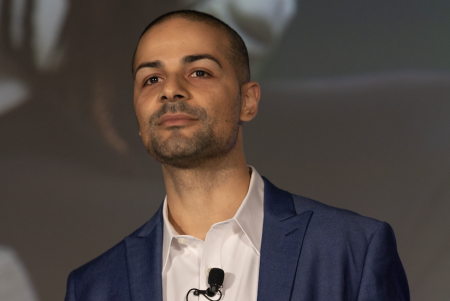Tune Therapeutics, a pioneering biotech company dual-headquartered in Seattle and Durham, North Carolina, has secured a remarkable $175 million in Series B funding, marking one of the largest investment rounds for a Seattle-area startup in recent years. This substantial injection of capital will propel Tune’s groundbreaking work in epigenetic editing, a cutting-edge technology that promises to revolutionize the treatment of various diseases by precisely controlling gene expression without altering the underlying DNA sequence. The company’s innovative approach represents a significant leap forward in genetic medicine, offering the potential to address a wide range of health conditions currently underserved by traditional therapies.
Tune’s core technology revolves around epigenetic editing, a sophisticated method of manipulating gene activity without changing the DNA sequence itself. Unlike gene editing, which directly modifies the DNA code, epigenetic editing focuses on altering the chemical modifications that surround DNA, influencing how genes are turned on or off. This approach is particularly relevant for diseases arising not from faulty genes themselves but from the misregulation of gene function, leading to an overproduction or underproduction of essential proteins. Tune’s technology leverages the power of targeted genetics to deliver an “effector” molecule directly to the misbehaving gene, precisely modulating its activity for a controlled duration. This targeted approach enhances therapeutic efficacy while minimizing potential off-target effects.
The company’s lead clinical program focuses on chronic Hepatitis B, a debilitating liver disease affecting over 250 million people globally and a leading cause of liver cancer. Current treatments for Hepatitis B often require lifelong medication and may not completely eradicate the virus. Tune’s epigenetic editing approach aims to provide a more targeted and potentially curative therapy by silencing or modulating the activity of viral genes involved in replication and persistence. The newly acquired funding will significantly support the ongoing clinical trials in New Zealand and Hong Kong, enabling Tune to gather crucial data on the safety and efficacy of its epigenetic therapy. While the timeline for US clinical trials remains undetermined due to the novelty of the technology, the initial results from these international studies are eagerly anticipated.
Tune’s technological platform, known as TEMPO, derives from research pioneered by co-founder Charles Gersbach at Duke University. This versatile platform can be adapted to address diverse health conditions beyond Hepatitis B, demonstrating its broad applicability and potential to transform the treatment landscape for various diseases. The company is actively exploring the use of TEMPO for other liver conditions and is investigating the possibility of reprogramming cell identity, effectively nudging diseased cells back to a healthy state through epigenetic modifications. This ambitious goal holds immense promise for regenerative medicine and could revolutionize the treatment of degenerative diseases.
The company’s strong leadership team comprises seasoned veterans in the biotech industry, including Akira Matsuno, co-founder and CFO, who previously held key positions at Lyell Immunopharma and Juno Therapeutics. Fyodor Urnov, a renowned expert in genome editing, serves as a co-founder and scientific advisor, further bolstering Tune’s scientific expertise. Their collective experience and vision provide a solid foundation for the company’s continued growth and success in translating groundbreaking research into life-changing therapies.
Beyond Hepatitis B, Tune is exploring the application of its technology to a broader range of liver conditions and is investigating its potential to reprogram cellular identity. By targeting unhealthy cells and guiding them back to a healthy state through epigenetic editing, Tune aims to revolutionize the treatment of degenerative diseases. This approach holds immense promise for regenerative medicine and could significantly impact the lives of patients suffering from conditions with limited treatment options.
The $175 million Series B funding round, led by prominent investors including New Enterprise Associates, Yosemite, Regeneron Ventures, and Hevolution Foundation, brings Tune’s total funding to over $200 million. This substantial investment underscores the immense potential of Tune’s epigenetic editing platform and reinforces the growing recognition of epigenetic therapies as a transformative force in modern medicine. The successful launch of clinical trials marks a significant milestone for Tune, representing not only a crucial step forward for the company but also a beacon of hope for patients and the field of genetic medicine as a whole. Tune’s groundbreaking approach has the potential to reshape the future of healthcare and provide much-needed solutions for complex diseases.
The success of Tune’s approach rests on the convergence of several scientific advancements. Firstly, the precise targeting of specific genes responsible for disease progression allows for a more focused and effective therapeutic intervention. Secondly, the ability to control the duration of gene modulation minimizes the risk of unwanted side effects and enhances the safety profile of the treatment. Finally, the use of lipid nanoparticle (LNP) technology, proven effective in delivering mRNA vaccines, provides a safe and efficient method of delivering the therapeutic molecules to target cells.
The potential long-term impact of Tune’s epigenetic editing platform extends far beyond the immediate treatment of diseases. By understanding the intricate mechanisms of gene regulation, scientists can develop more targeted and personalized therapies tailored to individual patients’ genetic profiles. This could lead to a paradigm shift in healthcare, moving away from a one-size-fits-all approach to a more individualized and precise treatment strategy. The ability to modulate gene activity without altering the underlying DNA sequence opens up exciting possibilities for treating a vast array of diseases, including cancer, autoimmune disorders, and genetic diseases.
The substantial funding secured by Tune Therapeutics highlights the growing investor confidence in the transformative potential of epigenetic editing. As the field continues to evolve, further advancements in technology and a deeper understanding of epigenetic mechanisms will undoubtedly lead to the development of even more sophisticated and effective therapies. Tune’s success story serves as an inspiration for other biotech startups and underscores the importance of investing in innovative research and development to address unmet medical needs.
Tune’s commitment to addressing chronic Hepatitis B, a global health challenge with limited treatment options, exemplifies the company’s dedication to improving patients’ lives. The ongoing clinical trials will provide valuable insights into the effectiveness of epigenetic editing in treating this debilitating disease and pave the way for future clinical applications. The potential for a curative therapy for Hepatitis B represents a significant breakthrough in liver disease treatment and offers hope for millions of patients worldwide.
The convergence of scientific breakthroughs, strong leadership, and substantial financial backing positions Tune Therapeutics at the forefront of the epigenetic editing revolution. As the company continues to advance its research and clinical development programs, the potential of epigenetic therapies to transform healthcare becomes increasingly evident. Tune’s unwavering commitment to innovation and patient care promises a brighter future for those suffering from a wide range of debilitating diseases.















